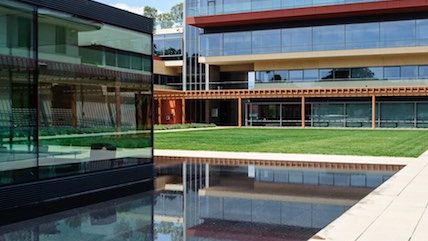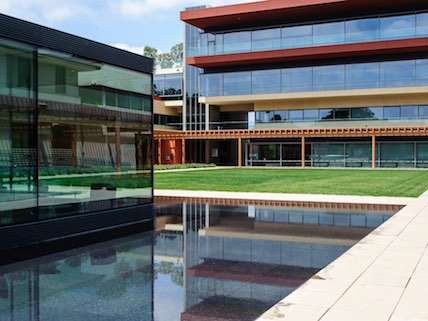This Claremont Safe Space for Women of Color Is Actually Pretty Hateful and Racist
Students form identity-based group in order to bash people they don't like.


Are non-inclusive safe spaces—ones designed for members of a specific minority—bastions of toleration? Not at the Claremont Colleges.
One of the more curious demands made by activists students in the past few months has been the repeated call for segregated safe spaces: places where black students, Latino students, female students, etc., could go to feel comfortable and protected. Such spaces are often closed to people who don't belong to the group, even if those people are supportive. At the University of Missouri, for instance, students of color formed a blacks-only healing space, and asked white allies to leave. If the space were to be invaded by members of an out-group, it would become unsafe—that's the thinking.
The Claremont Independent, a conservative student newspaper of the Claremont Colleges, recently obtained screenshots from a virtual safe space: 5C Women of Color, a Facebook group for black female students at the colleges. The group was private. It no longer exists—the women shut it down after they discovered that the Independent was planning to run an article about it.
I don't really want to shame these young women, who probably never expected that their conversations would become fully public. And I'm sure context would mitigate the offensiveness of some of their remarks.
But the reality is undeniable: this so-called safe space is just really racist. One woman, an Asian student, referred to Asian men as "nerdy ones who can just hide in their tech caves" and "they get all angry when it comes to how Asian men are asexualized/emasculated." Another female student, who works for the Asian American Resource Center and sits on the mental health committee, commented, "F*ck your masculinity whiny Asian cis bros this is why I only hang out with femmes."
This person agreed to an interview with the Independent, so I will quote her by name:
"As a feminine gay Asian woman," Kristine Lee told the Independent, "I'm not interested in surrounding myself with the kind of possessive, toxic masculinity exhibited by the type of Asian American men we were discussing in the post."
Other students talked about their unwillingness to enroll in classes that would be "dominated by white men." Another student didn't want to take a class that was taught by a conservative professor of color.
One student, who had been adopted, complained about her white parents. Another responded by making fun of white people's paleness and receding hairlines.
It was okay to make fun of white people because they were responsible for colonialism, said another.
Again, these students are entitled to their feelings. They may have had really bad experiences with white and Asian men—and conservative black professors—that validate their feelings. But they are clearly demeaning entire categories of people based on specific negative interactions. Is this not a kind of racism?
One of the purposes of a college education is to undermine racist and collectivist thinking by exposing students to the uniqueness and intrinsic worth of all people, regardless of skin color, gender, sexuality, ability status, etc. Imagine a student from a socially conservative background meeting an out-gay person for the first time and developing a new attitude about gay rights, or a militant atheist learning to empathize with devout followers of Christianity or Islam, or a Midwesterner developing an appreciation for Chinese culture after taking a class about it. This is the public good that college is supposed to facilitate.
But if students break off into groups based on immutable identity—and constantly reaffirm their prejudices about members of other identity-based groups—they aren't just missing the point of college: they are actively working against it.
Students, of course, have free speech and assembly rights, and should be allowed to sort themselves into whatever groups they want (even at Harvard). It should go without saying, but I don't think Claremont should take any action against these students or discourage their activities. But the next time students demand a formal race-based safe space—they have already done so at Western Washington University, the University of Arizona, and other places—the public should keep in mind that there are good reasons to rebuff them.


Show Comments (314)